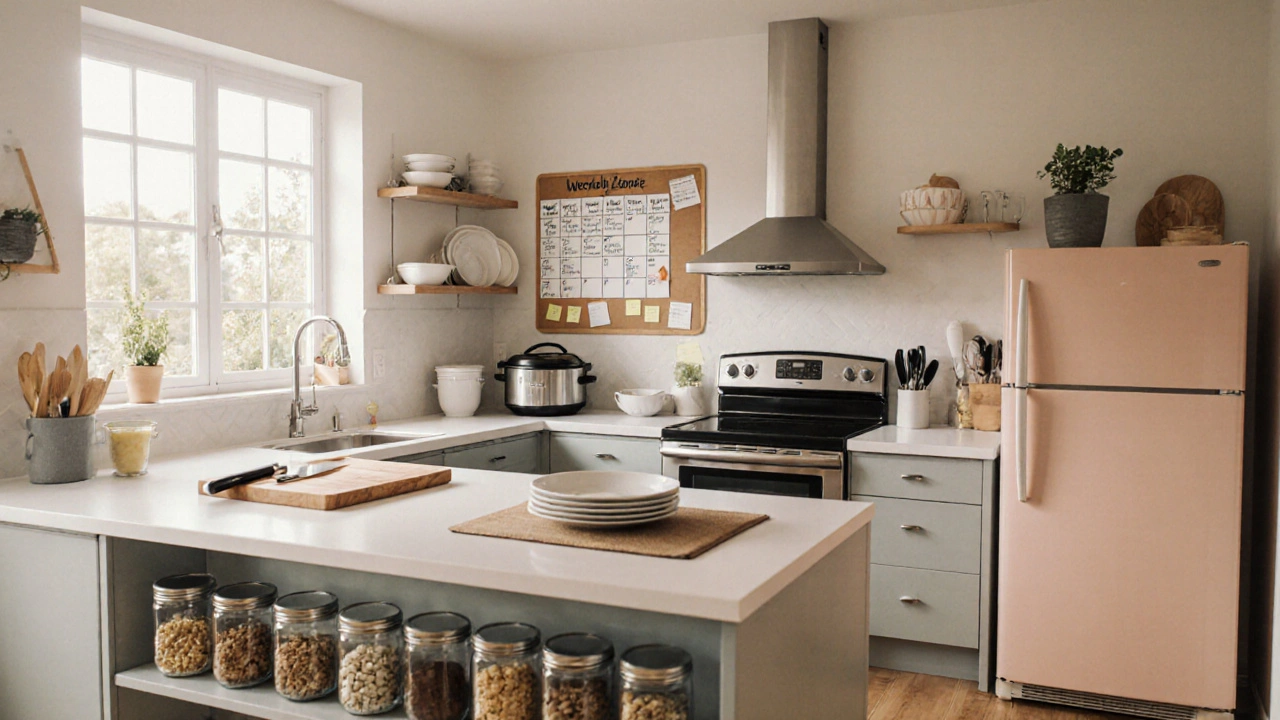Meal Planning Made Easy: Quick Tips for Everyday Cooking
Feeling overwhelmed by what to cook each night? You’re not alone. A solid meal‑planning routine can turn chaos into confidence. The goal isn’t to lock yourself into a rigid schedule, but to give you a flexible framework that saves time, money, and mental energy.
Start with a Flexible Weekly Template
Grab a sheet of paper or use a free phone app and draw a simple table: days across the top, meals down the side. Fill in the blanks with broad categories like "quick stir‑fry," "slow‑cooker chicken," or "vegetarian pasta." By keeping it generic you can swap ingredients based on what’s on sale or what’s already in your fridge. For example, if you plan a "protein‑plus‑veggies" night, you can use chicken, tofu, or beans depending on what you have.
Next, assign one or two anchor meals that you know you love and can repeat a few times a month. Think of them as your safety net. If you have a go‑to recipe for a hearty chilli, you can serve it on Monday, turn leftovers into tacos on Thursday, and freeze the rest for a busy weekend.
Smart Shopping & Batch Cooking Hacks
Once your template is set, write a short shopping list that covers only the essentials: proteins, fresh veggies, a few pantry staples, and a snack or two. Stick to the perimeter of the store where fresh produce lives and avoid the snack aisles – they’re designed to tempt you into extra spending.
When you get home, spend a couple of hours batch‑cooking. Roast a tray of mixed vegetables, boil a big pot of beans, and grill a batch of chicken breasts. Store everything in airtight containers. Later, you’ll just mix and match – a quick stir‑fry on Tuesday, a salad on Friday, and a soup on Sunday.
Don’t forget to label containers with the date. A quick glance tells you which items are freshest, and it helps you use up food before it goes bad. This simple habit cuts waste and stretches your grocery budget.
Another tip: use your freezer as a backup. Portion out soups, sauces, and cooked grains into freezer bags. When you’re short on time, just defrost a bag, reheat, and you have a dinner ready in minutes.
Finally, involve the whole family. Let kids pick a dinner theme for the week or help with simple prep tasks. When everyone has a stake, meals are more enjoyable and you’re less likely to skip the plan.
With a loose template, smart shopping, and batch cooking, meal planning becomes a habit that frees up evenings for the things you love. Give it a try for a week and notice how much smoother dinner time feels – no more last‑minute scrambling, just satisfying plates on the table.
Overcoming Taste Fatigue: 7 Easy Dinner Recipes That Actually Taste Good

Dorian Hawthorne
Oct, 17 2025Understanding the Family Meal Kitchen: A Complete Guide

Dorian Hawthorne
Oct, 14 2025Cheap Family Meals: How to Eat Well for Less for 4 People

Dorian Hawthorne
May, 30 20253 3 3 Rule for Weight Loss: How It Works and Why People Love It

Dorian Hawthorne
May, 1 2025Realistic Food Budget for 2 Adults: What to Expect and How to Make It Work

Dorian Hawthorne
Apr, 24 20255 Small Meals a Day: Simple Dinner Recipes That Make Life Easier

Dorian Hawthorne
Apr, 18 2025Fastest Way to Lose Weight with Healthy Recipes

Dorian Hawthorne
Feb, 9 2025Average Grocery Costs for Four-Person Households: Budget-Friendly Tips and Trends









